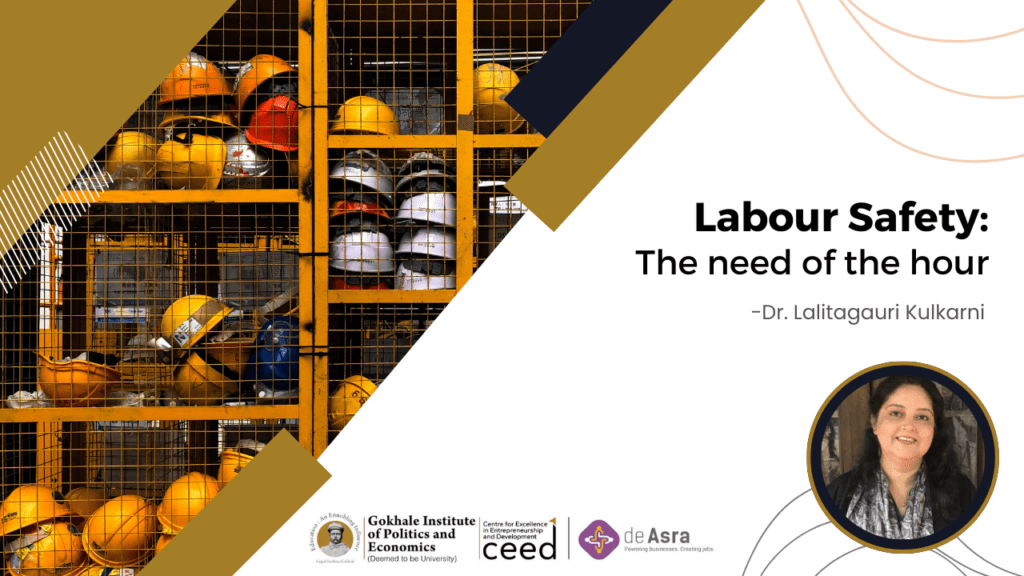Recently there was an unfortunate incident where a candle factory caught fire and a few workers succumbed to their death. These types of accidents raise questions regarding micro and small businesses. There are lakhs of micro and small scale industries in India that are run informally. More than 70 percent of enterprises in this sector are unregistered. Secondly, once a business is formally registered to operate, it has to follow various rules and regulations that focus on hygiene, safety, product quality, etc. in order to protect consumers. The safety and welfare of workers is also included under such rules. In order to regulate the conditions and safety of the working class in micro-enterprises, the enterprise must be officially registered. However, many businesses from cities like Pune are still unregistered. The government has continuously implemented awareness campaigns for this, but it has achieved little success. Micro and small scale entrepreneurs face numerous problems while operating in their respective sectors. Similarly, workers are also completely unorganised. A closer look at this industry reveals two different perspectives. Some small scale enterprises neglect the safety and other benefits of the workers. Most of the workers come from semi-educated or illiterate or economically lower class backgrounds. Labour is essential for the survival of any business, especially micro and small scale enterprises. Not getting the right people and not being able to retain them is the problem that these entrepreneurs face. To break this vicious cycle, enterprises must be registered and follow consumer and worker safety regulations. But not all entrepreneurs are the same. Some surveys also showed that nearly 40% of micro-entrepreneurs were paying workers even when their business was closed due to the pandemic.
While considering micro enterprises in the country, the nature of employer-labour relationship cannot be measured uniformly in this sector. There are also businesses in which some relatives and family members of the employer work. So, this working class does not fit in the rest of the official rules and conditions. Hourly wage rates may vary depending on hours of work, nature of work and qualifications of the worker. Many entrepreneurs involve the needy people of their society or the budding youth from the village in their businesses. For the youth, it is an informal training in business to start their own enterprise in the future. Nano industry, in this respect, is not just a business but a social organisation. This type of system is a social system which is even greater than the relationship between employer and worker. This is in a way an unwritten system that is regulated by society itself. Keeping in mind all these pitfalls, urgent steps need to be taken for the welfare and safety of the workers in this sector.
This article by Dr. Lalitagauri Kulkarni was originally published in Marathi in Sakal Newspaper on December 12, 2023.


